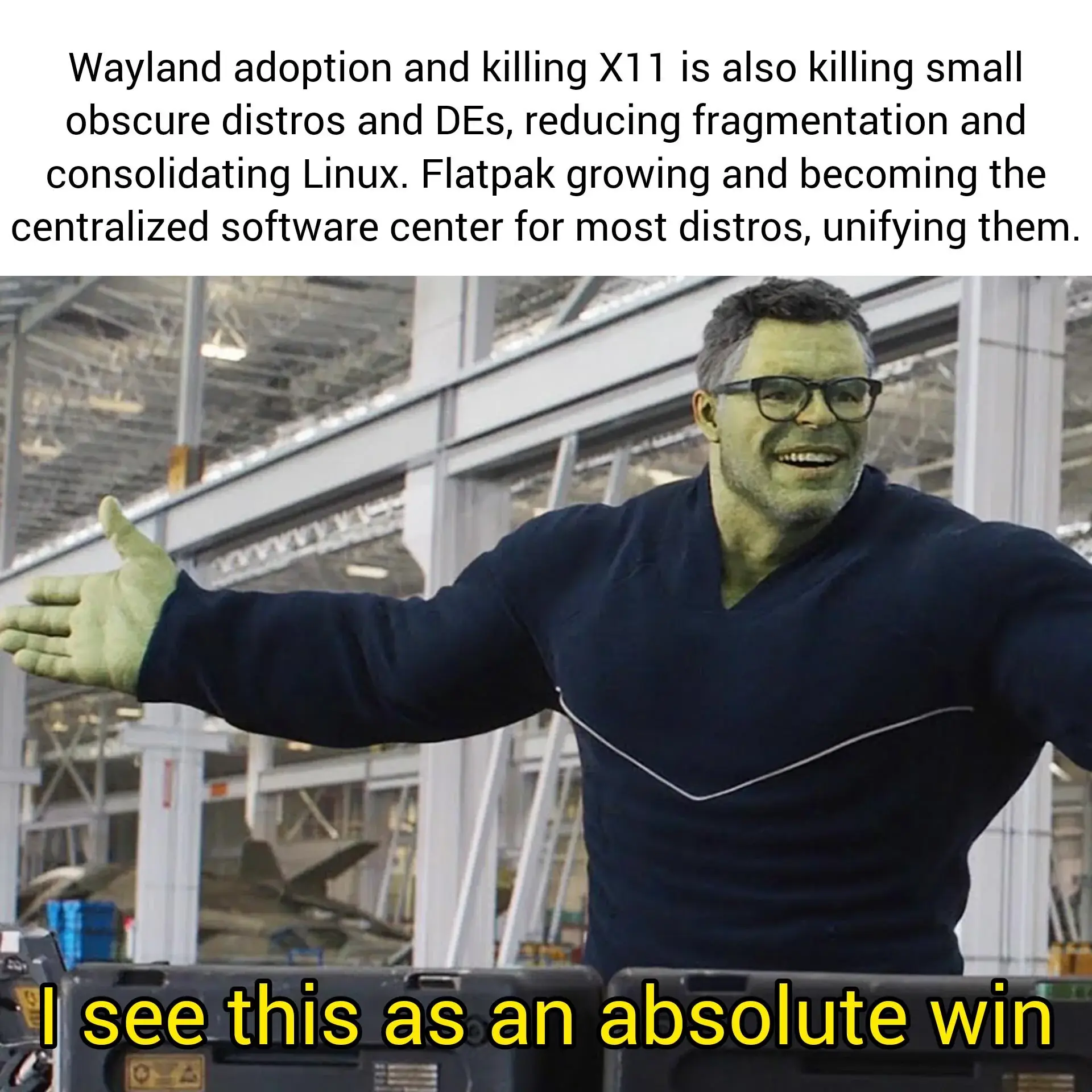this post was submitted on 12 Jan 2024
297 points (81.3% liked)
linuxmemes
24370 readers
765 users here now
Hint: :q!
Sister communities:
Community rules (click to expand)
1. Follow the site-wide rules
- Instance-wide TOS: https://legal.lemmy.world/tos/
- Lemmy code of conduct: https://join-lemmy.org/docs/code_of_conduct.html
2. Be civil
3. Post Linux-related content
sudo in Windows.4. No recent reposts
5. 🇬🇧 Language/язык/Sprache
6. (NEW!) Regarding public figures
We all have our opinions, and certain public figures can be divisive. Keep in mind that this is a community for memes and light-hearted fun, not for airing grievances or leveling accusations.Please report posts and comments that break these rules!
Important: never execute code or follow advice that you don't understand or can't verify, especially here. The word of the day is credibility. This is a meme community -- even the most helpful comments might just be shitposts that can damage your system. Be aware, be smart, don't remove France.
founded 2 years ago
MODERATORS
you are viewing a single comment's thread
view the rest of the comments
view the rest of the comments

Flatpak is good for diversity. Users don't need to worry about whether the obscure distro they want to use has the software they want in its repos. If a distro supports flatpak it will work with most popular software out of the box.
Plus, developers can create their own repositories that can then be used on any distro.
Developers are exceptionally bad at packaging software though.
Still better than developers providing .tar.gz files or hosting an apt repo.
Depends, at least with the APT repo there is a chance they used lintian to avoid the worst mistakes.
So having 1 packaging format that works across distros is good.
Having run PostmarketOS on an old Samsung Galaxy tablet and now Arch on PineTab 2, Flatpak often works better than the native package manager. Especially with Wayland, many packages just work including touchscreen.
I may be misunderstanding flatpack, though I do understand the draw of all dependencies in one package.
One of the big things that drew me to linux some years ago was "oh, you don't have to reinstall every dependency 101 times in a packaged exe so the system stays much smaller?" As well as in-place updates without a restart. It resulted in things being much much less bloated, or maybe that was just placebo.
Linux seems to be going in the flatpack direction which seems to just be turning it into a windows-like system. That and nix-like systems where everything is containerized and restarting is the only thing that applies updates seems to be negating those two big benefits.